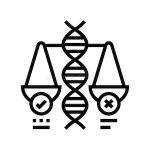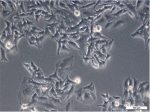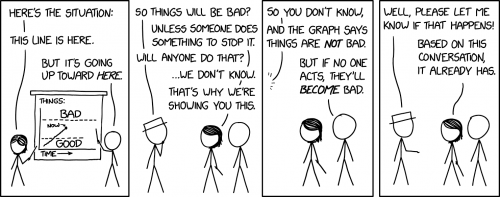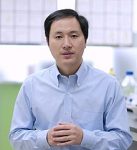I saw the rising tide of belligerent white nationalism coming, and knew I had to revise how I teach genetics. I’ve seen the kids who come out of public schools thinking that every feature is the product of simple Mendelian genetics, I’ve witnessed a president who declares that he’s got “good genes”, meaning white and German ancestry, I’ve read Quillette. There’s so much misinformation and bad science out there driving hateful ideologies, and my genetics teaching has been slowly adapting to combat it. I guess I’m going to have to accelerate my instruction, now that Nature has told me I must: Eugenics is on the rise again: human geneticists must take a stand.
I agree.
One of the things that made last semester rough is that I revised a big chunk of the class. I decided I had to abort a unit on developmental genetics — which hurt, I love developmental genetics, and it’s important — and we instead spent several weeks on ethical genetics. Throughout the term I brought up examples of the misappropriation of genetical ideas to prop up ugly ideologies, but then, damn it, we elected a know-nothing racist bigot to the presidency, and he immediately started flooding scientific agencies with bullshit.
At a hearing in February, the now-confirmed head of the US Department of Health and Human Services, Robert F. Kennedy Jr, reiterated his past comments that Black children should receive different vaccine schedules from white children because of variations in their immune systems.
Kennedy’s motives in this regard are unclear. But after making numerous demonstrably false statements about vaccination, he is providing another layer of reasoning that the scientist whose work Kennedy cites described as “twisting the data far beyond what they actually demonstrate” while promoting racial essentialism: the false belief that people of different ‘races’ have inherently distinct biology.
Meanwhile, although Trump stated at his inaugural address that his administration “will forge a society that is colorblind and merit-based”, an executive order he signed in March condemns as “corrosive ideology” the Smithsonian Institution’s promotion in its museums and research centres of the view that race is not a biological reality, but a social construct.
Yeah, I’ve got to start playing hardball here, and get explicit about rebutting specific racist ideas. I’ve been general about coaching students in ethical behavior and allowing them to bring up problematic topics, but I think next year I’m going to incorporate a few case studies of bad genetics, I’m not sure what I can pare out to make time, but there are definitely things I must expand.
Education is key to inoculating future generations against unscientific ideas and correcting currently held beliefs. Research into education at secondary-school and university levels has shown that particular teaching approaches, including those that focus on multifactorial inheritance and genetic ancestry, can help to guard against scientific racism and genetic essentialism.
These conversations must extend to researchers’ engagement with the public to both educate and advocate for science more broadly. Grass-roots efforts could help, such as Science Homecoming, an effort to encourage scientists to write opinion pieces in their local newspapers.
Yes! More about multifactorial inheritance! I think that will come at the expense of cutting back on Mendel. His ideas are fundamental, but I can cover them more succinctly. This stuff matters more than a limited set of experiments on pea plants, which were great in the 1860s, but are perhaps misleadingly simplified.
It’s also an important part of this goal:
Those in leadership positions must protect marginalized faculty members, staff and trainees, who will continue to be targeted in the coming years. Although many funding programmes focused on diversity, equity, inclusion and accessibility (DEIA) are no longer available, the ideals of DEIA — which are core to scientific progress — must be upheld.
Will do! Fortunately, I’m at a good progressive liberal university, and the students will be receptive to it all. The people who oppose DEIA are the freaky weird fringe.








